[Network Security Hazards] Five Social Platforms Safeguards
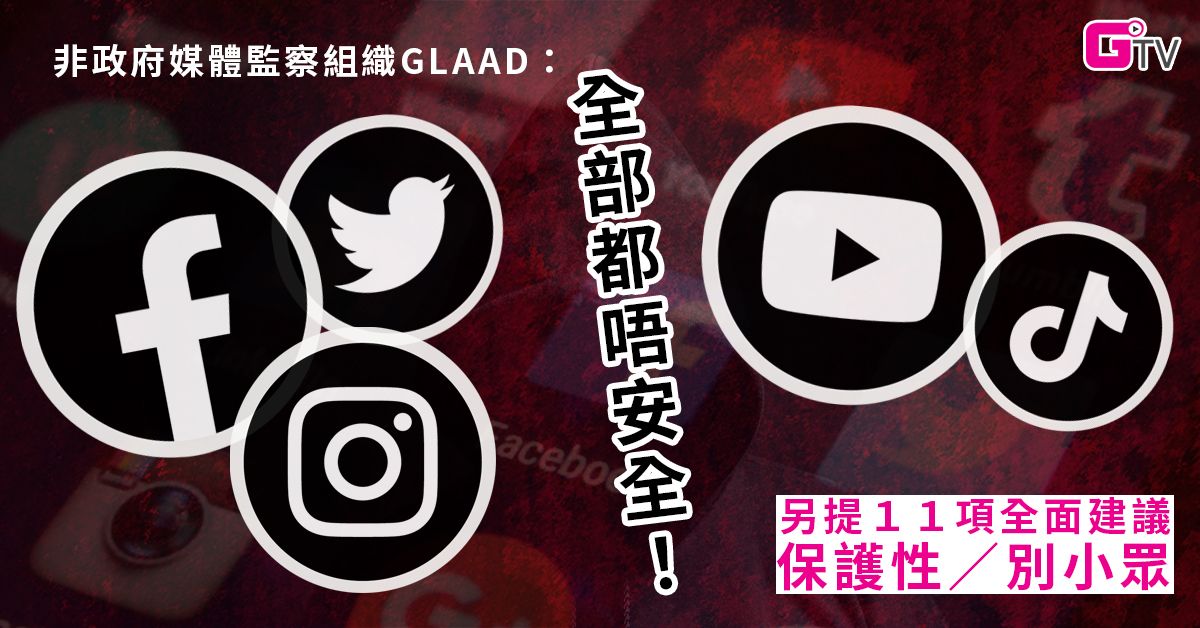
Written by: Nicole
Text editor: Maizi
Website Editor: CL
At present, there are more than 6 million active social media users in Hong Kong. Many people are accustomed to sharing their life, watching news and following social information through social platforms such as Facebook and Instagram. The Internet seems to be a paradise where "everyone has a voice", but there are also many malicious and discriminatory remarks against niche communities, and even social platforms themselves contribute to these prejudice, censorship and cyber violence. GLAAD, a non-government media watchdog, released its first-ever Social Media Safety Index report , pointing out that the world's top five social platforms are underperforming in a creative/niche-friendly online environment, despite the Policies to curb hateful and discriminatory speech have been introduced, but they also have many drawbacks, such as algorithms that promote extreme positions, shadow bans on gender/gender niche information, etc.
Follow GDotTV Telegram Channel,
Stay up-to-date with the latest news on G-spot TV!
Insufficient platform regulation of hate speech Algorithms fuel extreme positions
In May last year, GLAAD released the "Social Media Safety Index", which for the first time assessed how safe five social media platforms (Facebook, Twitter, Instagram, YouTube and Douyin) are for gender/gender minorities. GLAAD pointed out that it noted that various platforms have developed measures to regulate attacks on gender/gender minorities, such as Twitter's ban on "deadnaming" (meaning deliberately or misusing transgender people to refer to them by their old names) and "gender". Misgendering” (that is, addressing transgender people by a gender title they do not identify with) prevents slurs and malicious remarks directed at transgender people. However, the organization also warned that the current social media environment is still unsafe for the gender/gender minority, and there is still a lot of room for improvement in the gender/gender minority policies of various platforms. Among them, hate speech and harassment are the most urgent problems in need of improvement.
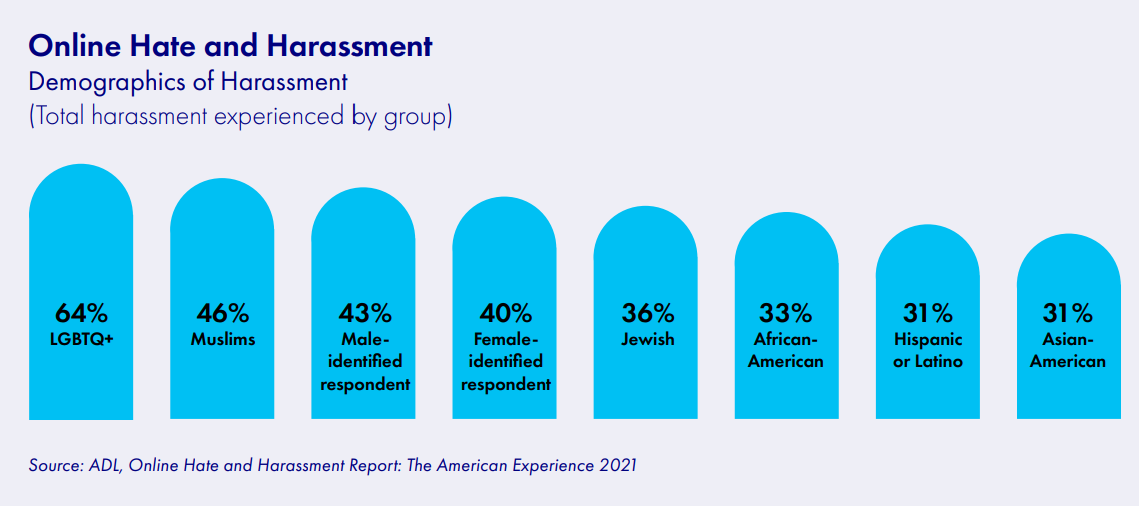
According to the statistics of the Anti-Defamation League (Anti-Defamation League) in 2021, gender/gender minorities are the most verbally attacked and harassed groups on social platforms, and up to 64% of the interviewed gender/gender minorities have been attacked by hate speech . However, not every social platform has specific policies to prevent hate speech and harassment. The design of the platform itself is more likely to encourage the emergence of extreme speech. The algorithm that makes recommendations based on content is one example.
Take YouTube as an example. According to a report published by the Royal United Services Institute in 2019 , the YouTube algorithm will recommend extreme content to users. If the user has watched far-right videos in the past, the algorithm will give priority to it. Let more extreme similar videos appear; the US media has also revealed that YouTube employees have already warned that the platform's recommendation function will accelerate the spread of extremism, but because this function can increase people's browsing time on Youtube and generate more advertising revenue, so YouTube executives It has been ignored, and the hateful thoughts and malicious speech against specific ethnic groups on the platform have become more and more serious.
Facebook Fake News Lack of Regulation Douyin Secretly Blocks Sexual Niche Content
GLAAD also pointed out that social platforms have various problems in handling gender/gender niche information. First, there is a lot of fake information about sex/gender minorities circulating on social platforms, but major platforms have failed to properly monitor and prevent the spread of this information. For example, in 2019, GLAAD received a complaint alleging that a law firm posted false information on Facebook and Instagram that PrEP is harmful to the human body, in order to attract sexual/sexual minorities taking the drug to sue the pharmaceutical company, Increase business. The incident attracted the attention of more than 50 gender/sexual minorities, AIDS patients, and public health organizations. After many negotiations, Facebook finally issued a statement saying that it would remove these misleading advertisements. However, after GLAAD and other agencies followed up, they found that there were still The presence of ads with almost identical words and images shows Facebook's ineffectiveness in detecting and blocking these false information.
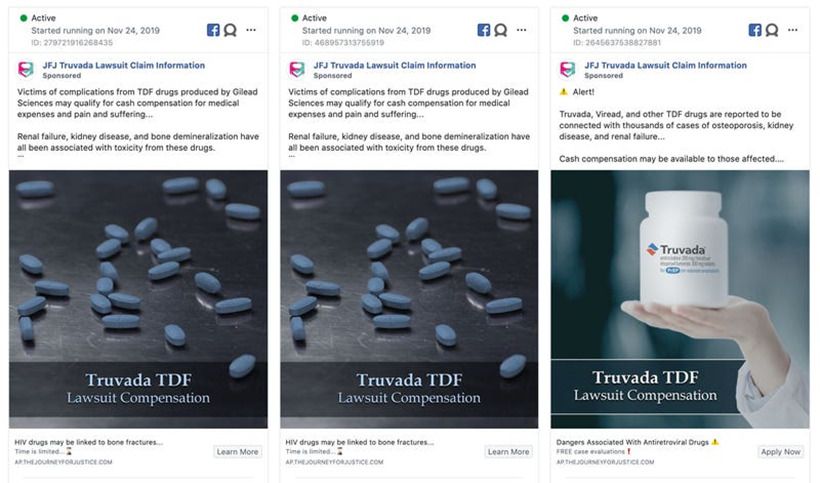
In addition, in the past, more social platforms have blocked sexual/non-niche information through shadow bans. For example, Douyin has been accused of implementing a number of measures to restrict sexual/non-niche related content . If TikTok users in Russia, Jordan, Bosnia and other places search for gay, lesbian, transgender and other gender/gender niche hashtags (hashtags), the system will automatically display "no results". Douyin explained that the hiding of gender/gender niche tags is partly due to compliance with local regulations, and partly because users mostly use such tags to search for pornographic content. However, the study found that Douyin's censorship method is not only targeted at specific countries, but also makes it impossible for users in other countries who use the same language to search for gender/gender niche information.
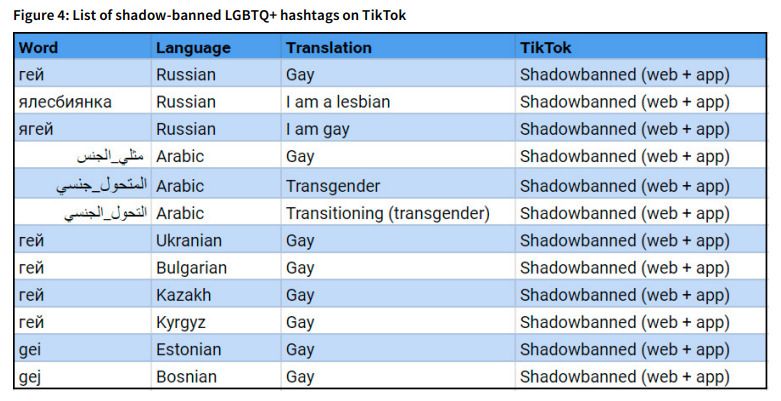
GLAAD makes 11 recommendations for social media to take greater responsibility
In response to the safety issues of different social media, GLAAD recommends one by one in the report, such as pointing out that Twitter should adopt more manual review and improve sensitivity to gender/gender niche terms; Instagram should improve its user reporting system to reduce the number of users on the platform. Discriminatory remarks against or against minorities, etc.
At the same time, GLAAD made 11 more comprehensive recommendations, calling on all social platforms to take greater responsibility for protecting gender/gender minorities, including adding protection to gender/gender minorities in the Community Code, reducing algorithms and AI bias, improving platform transparency, improving user reporting mechanisms, censoring hate speech and fake information, hiring gender/gender minority employees, etc.
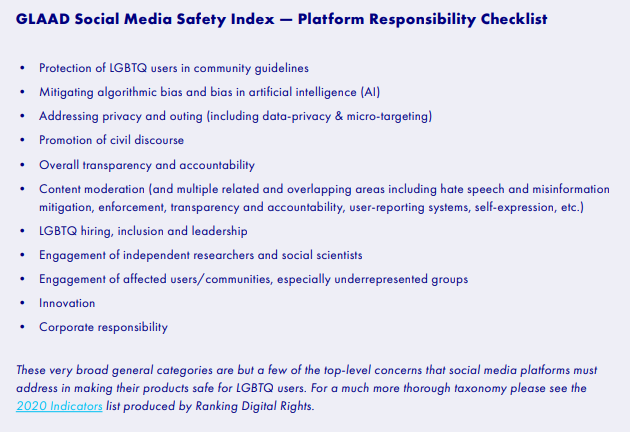
Whether the named social platform responds positively or not requires long-term observation
After GLAAD published the report, the five social platforms named responded successively, and most of them expressed their gratitude to the organization for their suggestions, saying that the report could help companies better understand the needs of gender/gender minorities and help strengthen the platform’s protection of gender/gender minorities. . Alex Schultz, Facebook's chief marketing officer, who is a gender/gender minority, also acknowledged that "it is very difficult to strike a balance between having a voice and limiting harmful content," underscoring the importance of Facebook's partnership with experts and non-profit organizations.
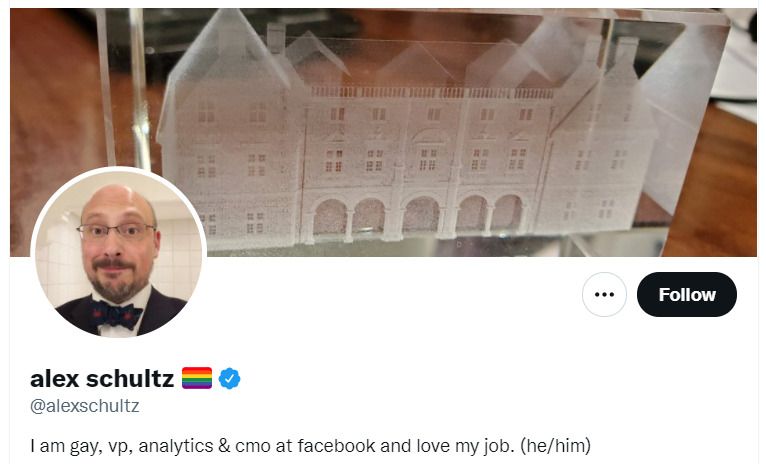
Although major social platforms responded positively to this report, just as Facebook promised to remove misleading ads harmful to gender/gender niches before, the platforms are still flooded with the same ads and other incidents. These social platforms Whether concrete actions will be taken in the future to maintain a more gender/gender-friendly online environment remains to be continued and long-term monitoring by the public and non-governmental organizations.
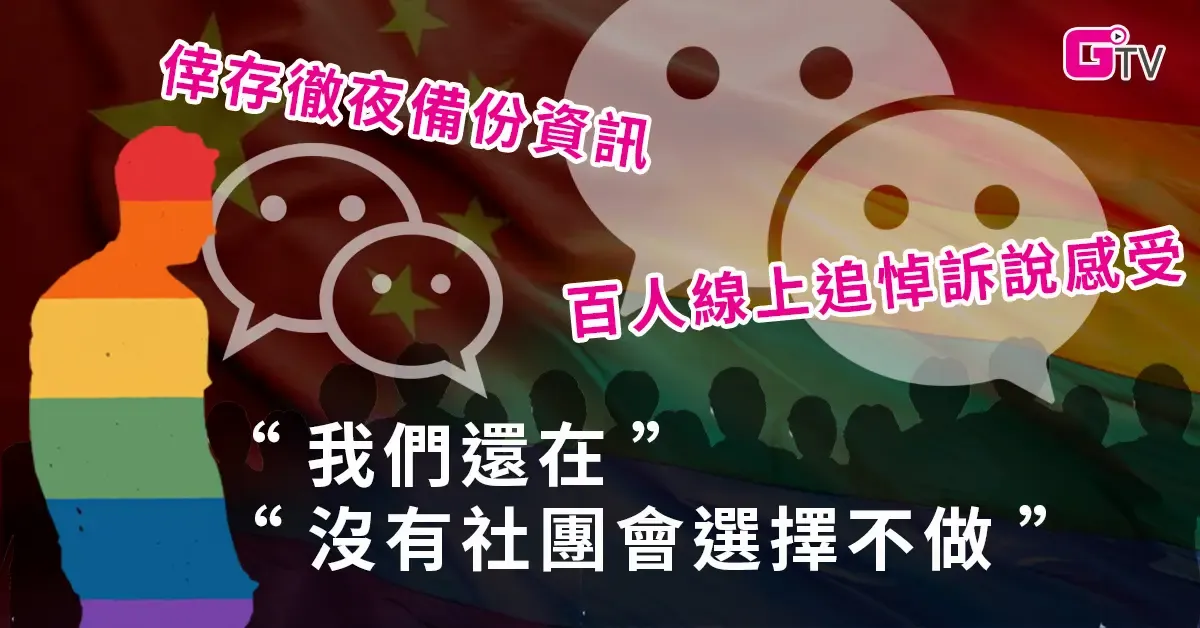
Extended reading: Where is the rainbow flag of the university when the gender/gender group WeChat public account is blocked?
Original link G-spot TV
Like my work? Don't forget to support and clap, let me know that you are with me on the road of creation. Keep this enthusiasm together!

- Author
- More